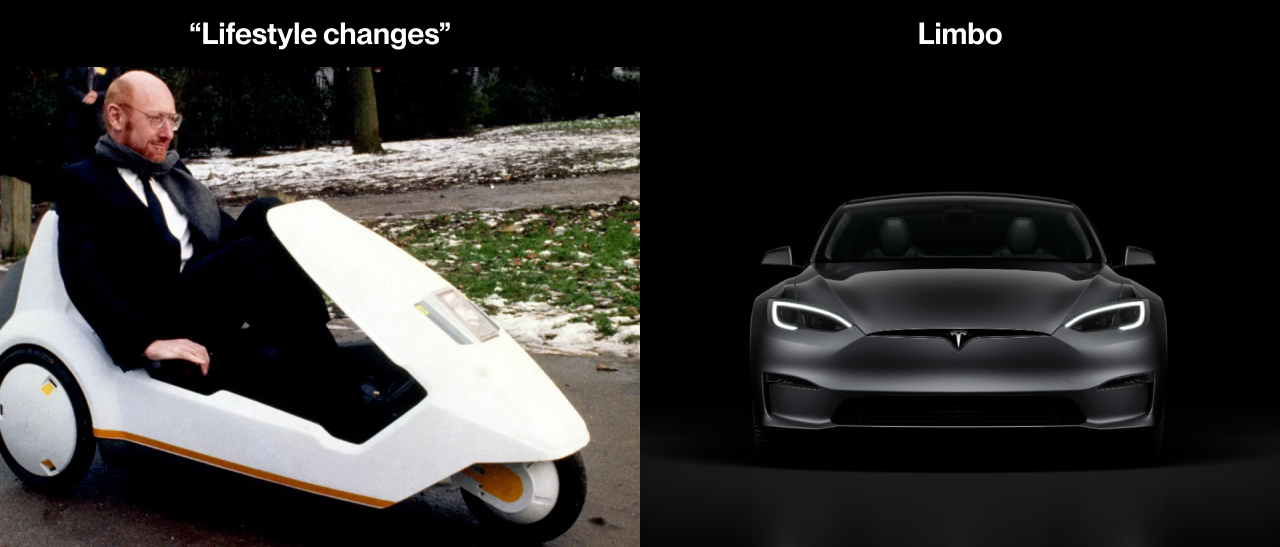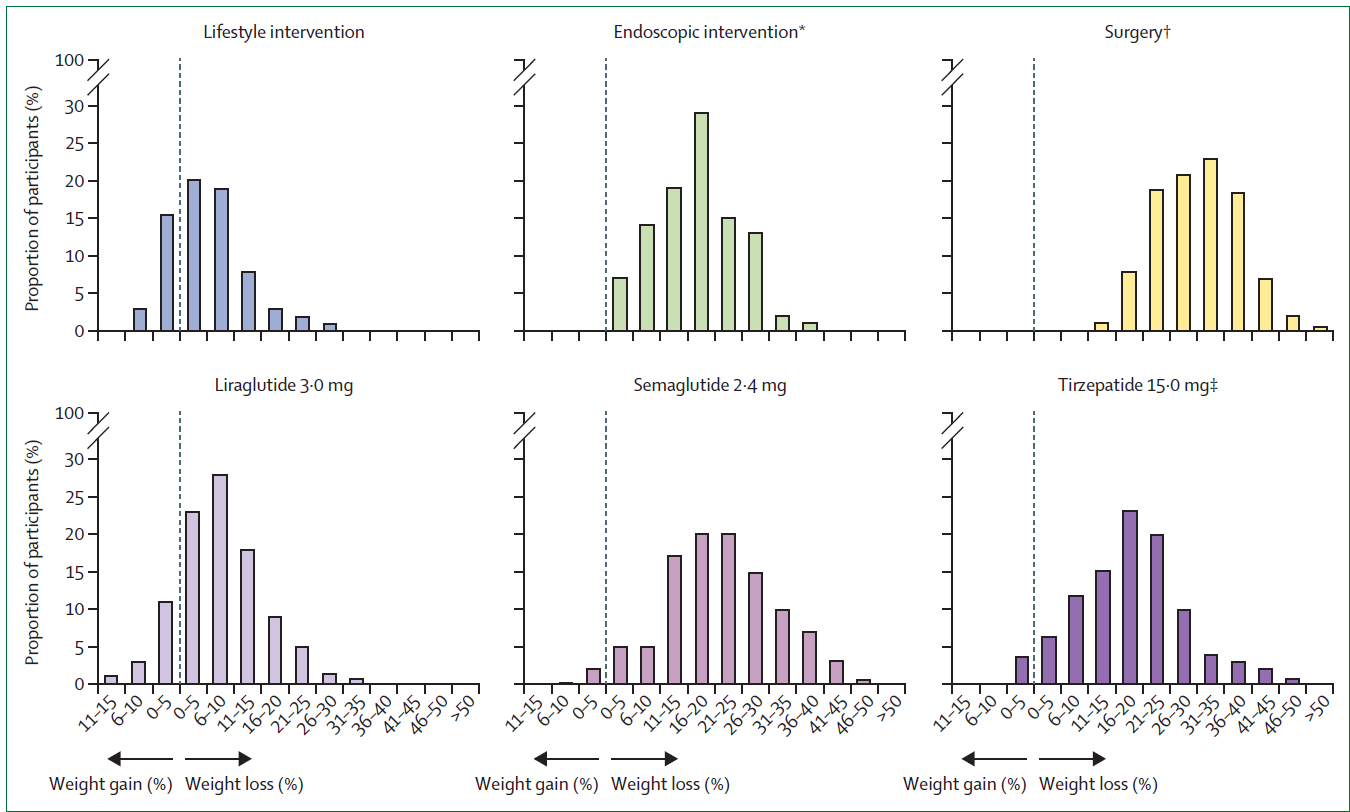The outcomes, as recorded in this paper, ranked surgery highest in terms of overall efficacy for weight loss, followed by GLP-1 meds, then, in a distant last place, “lifestyle intervention”. In a discussion of the paper on Twitter that included one of its authors, Dr Cohen, Jon Bischke made this observation:

Welcome to “lifestyle intervention” version 2.0
The Lancet published this paper in February, comparing the weight loss outcomes of different approaches to weight loss: surgical, pharmacological and “lifestyle”. This graphic was quite striking:

Can't access fully study but would be curious as to what "lifestyle intervention" entailed. Most studies I've seen that have this component are doing stuff that's super ineffective vs. what's coming next. Kinda like looking at EVs pre-Tesla & going "Oh these will never work..."
— Jon Bischke (@jonbischke) February 16, 2023
In the world of weight loss, the phrase “lifestyle” is a loaded term. For decades, obese people have been lectured to, chided, judged and stigmatized for their “lifestyle” choices, as if people wake up one day at a crossroads and pick “obese” instead of “not obese” whereas the virtuous people made the opposite decision. It’s absurd.
Obesity is a complex “BEPS” phenomenon but among its major drivers: Big Food and our hectic lifestyles have normalized the consumption of disastrously unhealthy highly-processed meals and snacks, and Big Fitness has helpfully provided an alibi, pushing the lie that exercise, rather than food changes, is the key to losing weight. And now Big Pharma is stepping in to say “keep eating the food that made you unhealthy, but inject these meds to make you nauseous so you eat a bit less of it.”
Replace guesswork with knowledge
Another driver of obesity: people have had no way to “see inside” their body, and understand what’s happening. Before Limbo, at least, there was no real-time data on the effect of food on your body, so people are left to guesswork. And for those whose food environment is not good, and whose satiety system gets “miswired” toward over-consuming food, the guesswork compounds over time into the end result: obesity.
This is why the phrase “lifestyle intervention” is so key. The association today is with all the tried-and-failed approaches of weight loss since the 1920s: diet books, packaged meals, exercise programs, calorie counting, fad diets and so on. All the things that we know don’t work. So “lifestyle intervention” has become synonymous with “ineffective”.
But what if something changes that? This is exactly Limbo. It’s not a drug or a surgery, so by the definition above it falls into the “lifestyle intervention”. But just like Tesla which emerged and took the car industry by surprise in a few short years, it’s something very different from before.
A paradigm shift in nutrition
There are some clear parallels. Tesla made a clean break with the standard approaches of carmaking since the early 1900s. Yes, it was a car — but it was also something very different from what went before. What people previously thought of as an electric car — slow, comical, a curiosity or a joke — suddenly changed when they could buy an AI-powered computer on wheels with a 5-figure price tag and a 0-60 speed that matched a million-dollar Ferrari.

Lifestyle 2.0 is based on data
Moving from fossil fuels to EVs was the car industry’s paradigm shift. This is what Limbo is doing for food and nutrition. The big change with Limbo is data. Instead of guesswork based on hopeless metrics like “calories” — a fundamentally incorrect model even in theory, let alone in practice — Limbo provides real-time data on blood glucose, and knowledge of how each unique individual’s energy system is working.
One of our first members recently completed her 1 year anniversary on the system. She has lost 15kg to date (down to 45kg from 60kg a year ago), a 25% reduction in weight, most of which happened in the first half year, plus great benefits in sleep, energy levels and more.
The new pharma approach to obesity promises around 15% weight loss in a year — a success, to be sure — but it comes with a host of nasty side effects, and the weight returns when injections stop, because it provides zero education to users on their body, it simply masks the symptoms rather than curing the ailment.
That Limbo, with no pharmacological side effects, and no rapid weight rebound afterwards, can deliver 25% weight loss in a year, is like nothing else that’s been available since the modern weight loss era began in the 1920s. Results that are typically better than meds and on par with surgery, but without the adverse physical ramifications: no homeostasis-altering drugs and no surgical removal of perfectly functioning body parts.
Limbo redefines your understanding of metabolism and food and gives you the notion of energy — it’s empowering and long-term, not obfuscatory and short-term. Unlearning gives you freedom to break the cycles that made you what you are, and start a new, more positive chapter in your life. That’s a “lifestyle intervention” to be excited about.